Romania’s de-Stalinization and its immediate aftermath
In Romania, the effects of Khrushchevs de-Stalinization rhetoric were contradictory

Steliu Lambru, 12.02.2018, 13:14
Three years after Joseph Vissarionovich Stalins death in 1953, the new Soviet leader Nikita Khrushchev lambasted his predecessors political excesses, demanding a new policy. Khrushchevs Report presented at the 20th Congress of the Soviet Unions Communist Party held in February 1956, a report which is still a classified document and known today as “the Secret Speech, is described as the outset of the de-Stalinization process. Back then Khrushchev launched a broadside at the purges that had killed devoted members of the party, whose loyalty to Stalin was beyond doubt. However, Khrushchev exposed only the crimes Stalin had committed against party and state activists, but not the mass-level crimes of Stalinism.
Notwithstanding, Khrushchevs report was received differently in the Soviet Bloc countries. Some of these countries had timidly begun small-scale reforms, while others stuck to the hard line of socialism, without liberalizing the course they had committed themselves to after 1945. Hungarys anti-communist revolt in the fall of 1956 was an example used by those who contested the de-Stalinization process initiated by Khrushchev in order to warn against the possible effects of a relaxation of socialist policies.
In Romania, the immediate effects of Khrushchevs rhetoric were contradictory. Stalinist leader Gheorghiu Dej maintained his position, to the detriment of the high–ranking party officials who contested the report, Miron Constantinescu and Iosif Chişinevschi.
Radio Romanias Oral History Center in 2002 recorded the testimony of Stefan Barlea, who in 1957 was a party activist in charge with youth problems. Barlea took part in a political bureau meeting staged to discuss Miron Constantinescu and Iosif Chişinevschis opposition to Gheorghiu-Dej. According to Barlea, Politburo meetings were a strictly inside deal, with only members of the bureau taking part:
Stefan Barlea: It was the second meeting I took part in, Gheorghiu-Dej didnt turn up, but Nicolae Ceausescu was there, he presided the proceedings. As far as I remember, also attending were Constantin Parvulescu and three or four other key members. The situation was laid out as to why those measures were adopted and suchlike, Liuba Chisinevschi, Iosif Chisinevschis wife, was also there, she had gotten involved in the conflict. The two contestants, Constantinescu and Chişinevschi, didnt attend. Ceauşescu gave the presentation, with Pârvulescu adding up to it, Alexandru Moghioroş was also there, and, yes, I forgot to mention the main actor, Petre Borila. A talk had been held in Moscow, immediately after Stalins personality cult had been exposed by Khrushchev, and taking part in that meeting were Gheorghiu-Dej, Miron Constantinescu, Iosif Chişinevschi and Petre Borilă. Of course things had been presented in detail there, just as they were also laid out at the 20th Congress of the Communist Party of the Soviet Union, the personality cult issue included. The two of them, Constantinescu and Chişinevski, shared the opinion that personality cult elements had been identified in Romania as well. According to rules of the time, a debriefing session was mandatory after any visit abroad, at the Politburo, and, if the case, at the Central Committee. But apparently Constantinescu and Chişinevschi did not report this to Gheorghiu-Dej. Instead, the two began advocating the idea that Gheorghiu-Dej too resorted to the cult of personality, that such proclivities had been reported for our country as well. Stuff Borila did not accept, nay, he even rejected it.
The struggle for power at the top of the party was bitter, but there was no longer any question of physical harm, as had been the case during Stalin. The worst that could happen to Miron Constantinescu and Iosif Chisinevschi was to be kicked out of the party.
Stefan Barlea: “The two of them tried to garner support in the Politburo behind Gheorghe Gheorghiu-Dejs back. One went to Constantin Parvulescu, the other to Moghioros, trying to plant the idea into their heads. Nothing came of it, naturally, so a discussion was held in the Politburo. Gheorghiu-Dej looked like he was faced with a fait accompli, or was supposed to believe he was. Both Parvulescu and Moghioros rejected these things and said as much in the politburo meeting. So Constantinescu and Chisinevschi found themselves isolated. Miron Constantinescu still had a score to settle with Gheorghiu-Dej, having made some irreverent comments about him to Stalin himself when they were discussing sidelining Ana Pauker. Gheorghiu-Dej reacted quite strongly and decided to raise the matter during a plenary meeting of the Central Committee. Ceausescu, who was a young man at the time, told us it was decided that Miron Constantinescu and Iosif Chisinevschi would explain to the Central Committee their report to the Politburo, the conclusions and everything else. In other words, it was a kind of self-incrimination before the Central Committee. The outcome was that the Committee decided to exclude them from their ranks and strip them of all their positions. Miron Constantinescu had worked closely with Gheorghiu-Dej and held important positions in the party, as part of the Soviet group. It was in fact a power struggle, with Miron Constantinescu and Iosif Chisinevschi trying to appear as the real leaders. Except that Gheorghe Gheorghiu-Dej was better at playing this game.
De-Stalinisation did not have many consequences in Romania, with Gheorghe Gheorghiu-Dej maintaining his position. The most visible effect of de-Stalinisation was the withdrawal of the Soviet troops in 1958, which did not affect much what happened later in Romania.
(translated by: Calin Cotoiu, Cristina Mateescu)






























